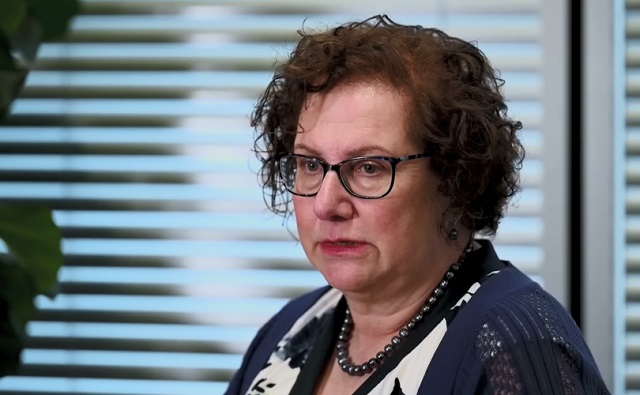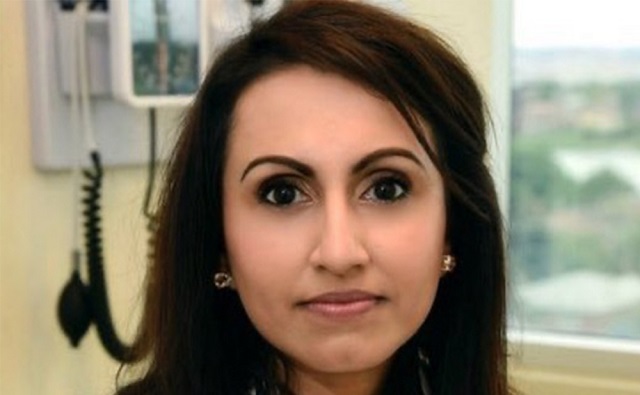Health
Alabama ban on nearly all abortions in GOP governor’s hands

MONTGOMERY, Ala. — Alabama legislators have given final approval to a ban on nearly all abortions, and if the Republican governor signs the measure, the state will have the strictest abortion law in the country.
The legislation would make performing an abortion a felony at any stage of pregnancy with almost no exceptions. The passage Tuesday by a wide margin in the GOP-led Senate shifts the spotlight to Gov. Kay Ivey, a fixture in Alabama politics who’s long identified as anti-abortion.
Ivey has not said whether she’ll sign the bill. Sponsor Rep. Terri Collins says she expects the governor to support the ban. And the lopsided vote suggests a veto could be easily overcome. But an Ivey spokeswoman said before Tuesday’s vote that “the governor intends to withhold comment until she has had a chance to thoroughly review the final version of the bill that passed.”
In Alabama and other conservative states, anti-abortion politicians and activists emboldened by the addition of conservative justices to the U.S. Supreme Court hope to ignite legal fights and eventually overturn the landmark 1973 decision Roe v. Wade, putting an end to the
“Roe v. Wade has ended the lives of millions of children,” Alabama Republican Sen. Clyde Chambliss said in a statement. “While we cannot undo the damage that decades of legal precedence under Roe have caused, this bill has the opportunity to save the lives of millions of unborn children.”
Democrats didn’t shy away from blasting their GOP counterparts.
“The state of Alabama ought to be ashamed of herself. You ought to be ashamed. Go look in the mirror,” Sen. Bobby Singleton said “Women in this state didn’t deserve this. This is all about political grandstanding.”
The bill would make performing an abortion a felony punishable by up to 99 years or life in prison for the abortion provider. The only exception would be when the woman’s health is at serious risk. Under the bill, women seeking or undergoing abortions wouldn’t be punished.
Kentucky, Mississippi, Ohio and Georgia have approved bans on abortion once a fetal heartbeat is detected, which can occur in about the sixth week of pregnancy. The Alabama bill goes further by seeking to outlaw abortion outright.
Alabama senators rejected an attempt to add an exception for rape and incest. The amendment was voted down 21-11, with four Republicans joining Democrats in seeking the amendment.
Supporters had argued that exceptions would weaken their hope of creating a vehicle to challenge Roe. Collins said that the law isn’t meant to be a long-term measure and that lawmakers could add a rape exception if states regain control of abortion access.
“It’s to address the issue that Roe. v. Wade was decided on. Is that baby in the womb a person?” Collins said.
Democrats criticized the ban as a mixture of political grandstanding, an attempt to control women and a waste of taxpayer dollars.
During debate, Singleton pointed out and named rape victims watching from the Senate viewing gallery. He said that under the ban, doctors who perform abortions could serve more prison time than the women’s rapists.
In a statement, Staci Fox of Planned Parenthood Southeast said, “Today is a dark day for women in Alabama and across this country. … Alabama politicians will forever live in infamy for this vote and we will make sure that every woman knows who to hold accountable.”
Outside the Statehouse, about 50 people rallied and chanted, “Whose choice? Our choice.” Several women dressed as characters from the “The Handmaid’s Tale,” which depicts a dystopian future where fertile women are forced to breed.
If the bill becomes law, it would take effect in six months. Critics have promised a swift lawsuit. Randall Marshall, executive director of the American Civil Liberties Union of Alabama, said a complaint is being drafted.
____
Associated Press writer Blake Paterson in Montgomery, Alabama contributed to this report.
Kim Chandler, The Associated Press
Health
UK pediatrician who led review of child ‘transitions’ says US medical groups ‘misleading the public’

Dr. Hilary Cass, author of the Cass Review
From LifeSiteNews
The American Academy of Pediatrics’ support for surgically and chemically mutilating gender-confused children ‘is now demonstrated to be out of date by multiple systematic reviews,’ Dr. Hilary Cass told the New York Times.
The typically left-wing New York Times published an interview on Monday with consultant pediatrician Dr. Hilary Cass on her comprehensive review of so-called “gender medicine” in the United Kingdom, indicating that awareness of the damage due to surgical and chemical “transitioning” continues to spread despite the best efforts of LGBT activists.
Released in April, 366-page Cass Review was commissioned by National Health Service (NHS) England following ongoing scandals about the practices of British “gender clinics” such as the Gender Identity Development Service (GIDS), operated by the Tavistock and Portman NHS Foundation Trust. The four-year project consisted of comprehensive reviews of current research and international standards, as well as extensive interviews with gender-confused children and adults, family members, detransitioners, doctors, and activists.
It found that “gender medicine” is “built on shaky foundations” and that while such interventions require a great deal of caution, “quite the reverse happened in the field of [so-called] gender care for children,” and that “[w]hile a considerable amount of research has been published in this field, systematic evidence reviews demonstrated the poor quality of the published studies, meaning there is not a reliable evidence base upon which to make clinical decisions, or for children and their families to make informed choices.” Her findings led NHS to stop prescribing puberty blockers to children with gender confusion earlier this year.
Speaking to the Times, Cass explained that she was planning her retirement when she was first asked to tackle the project and was initially apprehensive about wading into the controversy.
“The most important concern for me is just how poor the evidence base is in this area,” she said. “Some people have questioned, ‘Did we set a higher bar for this group of young people?’ We absolutely didn’t. The real problem is that the evidence is very weak compared to many other areas of pediatric practice.”
The Times acknowledged that her “findings are in line with several European countries that have limited the treatments [sic] after scientific reviews. But in America, where nearly two dozen states have banned the care outright, medical groups have endorsed the treatments as evidence-based and necessary,” including groups the paper contacted for its latest story. Cass described American medical consensus as “out of date” on the issue.
“When I was president of the Royal College of Pediatrics and Child Health, we did some great work with the A.A.P. [American Academy of Pediatrics],” she elaborated. “They are an organization that I have enormous respect for. But I respectfully disagree with them on holding on to a position that is now demonstrated to be out of date by multiple systematic reviews.”
“It wouldn’t be too much of a problem if people were saying ‘This is clinical consensus and we’re not sure,” she added. “But what some organizations are doing is doubling down on saying the evidence is good. And I think that’s where you’re misleading the public. You need to be honest about the strength of the evidence and say what you’re going to do to improve it.”
A significant body of evidence shows that “affirming” gender confusion carries serious harms, especially when done with impressionable children who lack the mental development, emotional maturity, and life experience to consider the long-term ramifications of the decisions being pushed on them.
Studies find that more than 80% of children experiencing gender dysphoria outgrow it on their own by late adolescence, and that even full “reassignment” surgery often fails to resolve gender-confused individuals’ heightened tendency to engage in self-harm and suicide — and may even exacerbate it, including by reinforcing their confusion and neglecting the actual root causes of their mental strife.
Yet while mounting evidence against youth “gender transitions” is prompting European nations such as the United Kingdom and France, which are normally to the left of America, to move away from the practice, in America, the medical establishment and the Biden administration continues to dig in their heels, despite Biden’s own Substance Abuse & Mental Health Services Administration (SAMHSA) releasing a since-deleted report last year acknowledging that “lesbian, gay, and bisexual adults are more likely than straight adults to use substances, experience mental health conditions including major depressive episodes, and experience serious thoughts of suicide.”
The White House’s comprehensive pursuit of the transgender agenda has included reopening the military to recruits afflicted with gender dysphoria, promoting gender ideology within the military (including “diversity” and drag events on military bases), holding White House events to “affirm transgender kids,” condemning state laws against underage “transitions” as “close to sinful,” promoting underage “transitions” (potentially at taxpayer expense) as a “best practice,” and trying to force federally funded schools to let males into female athletic competitions and restrooms.
Health
South Korean president declares low birth rate a ‘national emergency,’ plans new ministry to address it

From LifeSiteNews
President Yoon Suk Yeol announced that he would ask for the parliament’s support to establish a new Ministry of Low Birth Rate Counter Planning after the country reached a new low with an average number of babies per woman of 0.72 in 2023.
South Korea’s president has declared the country’s low birth rate a “national emergency” and announced a new government ministry to address the problem.
In a televised press conference on May 9, President Yoon Suk Yeol said, “We will mobilize all of the nation’s capabilities to overcome the low birth rate, which can be considered a national emergency.”
He announced he would ask for the parliament’s support to establish a new “Ministry of Low Birth Rate Counter Planning.”
South Korea has had the lowest fertility rate in the world for years, and the average number of babies per woman dropped to a new low of 0.72 in 2023, down from 0.78 the previous year.
Despite the government’s efforts to increase the birth rate by spending over $200 billion on initiatives meant to encourage larger families, including infertility treatment, cash subsidies, and childcare services, the country’s birth rate declined for the fourth year in a row in 2023.
A Korean Construction corporation made headlines this year for offering employees $75,000 for each baby they have. “If Korea’s birth rate remains low, the country will face extinction,” Lee Joong-keun, chairman of the Booyoung Group, warned.
READ: New ‘Birthgap’ film shows how explosion in childlessness is driving population collapse
According to YouTuber Stephan Park, who grew up in South Korea and runs the YouTube channel Asian Boss, Korean men face the additional problem of being expected to own a house when they marry, which is very difficult under the country’s current economic conditions.
“There are all the societal pressures that if you get married, guys are the ones that are supposed to buy the house, to have the house ready, which is impossible to have if you are a 30-year-old guy … with the average house prices you’ll never be able to afford one in your lifetime,” Park explained.
“So that’s the most common thing we hear: ‘I cannot afford to get married,’” he added.
According to some projections, South Korea’s and multiple other Western and Asian populations are expected to be cut in half by the year 2100 if the current trends continue.
-

 conflict2 days ago
conflict2 days agoWhite House Reportedly Worried About Russia’s Sudden Momentum Months After Biden Declared Putin ‘Already Lost’ War
-

 Crime23 hours ago
Crime23 hours agoThe US Canadian border: Greatest number of terrorist watch list individuals being apprehended at northern border
-

 Health2 days ago
Health2 days agoSouth Korean president declares low birth rate a ‘national emergency,’ plans new ministry to address it
-

 Alberta2 days ago
Alberta2 days agoFortis et Liber: Alberta’s Future in the Canadian Federation
-

 Crime2 days ago
Crime2 days agoSlovakian prime minister who opposed WHO Pandemic Treaty shot in assassination attempt
-

 COVID-191 day ago
COVID-191 day agoNIH Quietly Altered Definition For Gain-Of-Function Research On Its Website, Former Fauci Aide Confirms
-

 Health2 days ago
Health2 days agoUK pediatrician who led review of child ‘transitions’ says US medical groups ‘misleading the public’
-

 COVID-192 days ago
COVID-192 days agoElon Musk-backed doctor critical of COVID response vows appeal after court sides with medical board







